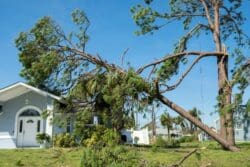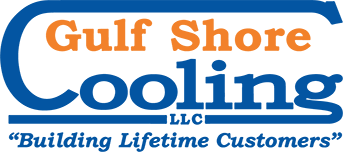
The recent destruction caused by Hurricane Helene and Milton was a grim reminder of the dangers that hurricanes bring in their wake. Hurricane season stretches from early June to late November—but the damage caused by a hurricane is not unpreventable. Preparedness before a storm is crucial, especially for homeowners who live in areas prone to hurricanes such as Florida. By taking certain steps, you can avoid your home becoming another statistic.
Hurricane Preparedness for Homeowners
When a hurricane makes landfall, it brings turbulent wind and torrential rain. Broken windows and flooding are common. Empty your gutters to allow heavy rainfall to collect and channel away from your property. Make sure tree branches are trimmed so they don’t break and fall onto your roof. Bring in outside items like furniture as they can become hazardous in high winds. If you are in a flood zone, use sandbags to mitigate flooding.
If you plan on staying, find a safe spot in the house. Have supplies like food and water along with a generator in the case of lost power. Fill up a bathtub or other receptacle to have water for cleaning or flushing the toilet. If you need to evacuate, make plans and make sure your car is filled when the time comes.
If you have insurance, make sure to review the terms. Any physical copies should be kept along with other valuables in waterproof containers. When it comes to your HVAC system, covering them will create protection from any flying debris. After the storm has passed, having a professional inspection by Gulf Shore Cooling helps assess the state of the system and resolve any issues. Taking these preventative measures helps to minimize the possible damage to your property and ensures your safety.

Steps to Secure Your Home for Hurricane Season
Preparedness for a hurricane does not stop at simply buying supplies. There are multiple steps to take to ensure the integrity of your home structure and the interior utilities.
-
Protect Windows and Doors
Any windows or doors that are not protected by storm shutters need to be covered. Use plywood to create a layer of protection. Any gaps between the wood should be filled with a material like caulk to prevent leaking.
-
Secure the Roof
Have your roof inspected before securing it. This ensures features of the roof are not already damaged; find and replace any missing or broken pieces like braces or shingles. For shingles, specifically, seal or nail them down as these can be blown away by the wind. Search for any openings or cracks and seal them down. This will prevent the rainfall from seeping through. Additionally, hurricane straps, known as truss tie-downs, when installed can fortify the roof. Taking these measures can help prevent common roof damage.
-
Safeguard Outdoor Items
Items like furniture or grills should be brought inside if there is space. If inside is not an option, anchor these items down to prevent them from blowing away. Large outdoor items may become projectiles if they aren’t secured. Anchor structures, like sheds, to prevent them from being swept away by extreme winds.
-
Prepare an Emergency Kit
A hurricane can cause a power outage fast. To prepare for this, make sure you put together a kit that can last beyond the hurricane’s aftermath. The kit should include items like:
- Flashlights
- Radio
- Tools to access and turn off utilities (pliers, wrenches, etc)
- Spare batteries
- Cell phone, charged with backup battery
- First Aid items/Medication
- Bottled Water
- Non-Perishable foods
- Valuables in waterproof containers
- Gasoline if using a gas generator
-
Install a Backup Generator
A backup or portable generator helps solve the issue of power loss. A power outage not only causes the loss of electronic devices but also puts your food at risk. Backup generators provide emergency power to your devices like the refrigerator and stove. The emergency power can also be supplied for your cell phone so you have a method of communication.
-
Inspect Your HVAC System
Ensure you check your units, as they can be significantly damaged by the storm. Identifying and resolving small issues can help prevent further damage from the weather. A good preventative measure is to cover the units, as this will protect them from flying debris. If there are lingering problems, call the professionals from Gulf Shore. We perform swift and efficient emergency repairs for your HVAC system.
Have an emergency? Give us a call and we’ll be on your property right away.
-
Check for Proper Drainage
Any areas of the home that water will flow through should be as cleared as possible. If any blockages are present, water flow from the downpours can become too much for the system to handle. Resulting in destroyed plumbing and flood damage. Prime areas include your gutters, downspouts, and water basins.
Factors to look for in your drainage system include:
- Check for obvious blockages in water flow
- Listen for strange sounds like bubbling
- Bad odors, which indicate debris buildup
Post-Hurricane Home Inspection
After the storm has passed and it is safe outside, it is time to assess your property. Check for visible damage to areas such as your roof; look for missing pieces like shingles or gutters. Also, check windows and doors to see if there is significant damage.
From there, look for areas where water might be present as this can cause damage to your foundation. Factors to look for include visible water damage, cracks, or discoloration. Any appliances that get wet or damaged should not be handled or turned on. Indoor air quality may have suffered during the storm, so be sure to schedule an inspection.
Any HVAC unit should be thoroughly checked as flood damage can risk mold or bacteria growth. These growths have health risks that are not eliminated. An HVAC professional from Gulf Shore will assess the full status of your units and resolve issues that arise.

Hurricane Safety Tips
Safety should be the top priority during a severe weather event like a hurricane. Follow the steps above to secure your property and remember to keep an emergency kit nearby. Stay in a safe location away from windows and doors and monitor the storm if you can. Use battery-powered devices, such as a radio, to keep updated. Make sure to turn off all utilities, including gas and electricity.
After the hurricane, inspect the same areas you checked while preparing for the storm. Look at your roof, doors, windows, and other potential trouble spots for any damage. Examine areas that may have suffered flood damage, including your HVAC units. If you took precautions before the hurricane, you may find your property sustained less damage.
Tip: Please review the official hurricane preparation guidelines outlined by FEMA.
How Gulf Shore Cooling Assists with Hurricane Preparedness
Your HVAC system plays a vital role in providing daily comfort in your home. A hurricane harshly disrupts the comfort of your home, but the HVAC services of Gulf Shore prepare your system in the face of any weather. Since 2000 we have provided thorough HVAC services, ranging over every aspect of your system. Our experts handle inspections, installation, improving air quality, repairs, and more! All of our services are available for the last-minute emergency Hurricane prep. Our experts are available for any HVAC prep you need. Let Gulf Shore help you prepare for the hurricane seasons to come.
The recent destruction caused by Hurricane Helene and Milton was a grim reminder of the dangers that hurricanes bring in their wake. Hurricane season stretches from early June to late November—but the damage caused by a hurricane is not unpreventable.
Preparedness before a storm is crucial, especially for homeowners who live in areas prone to hurricanes such as Florida. By taking certain steps, you can avoid your home becoming another statistic. Prepare your HVAC system for hurricane season with Gulf Shore—call 239-232-6653 today for expert services that safeguard your home from storm disruptions.



